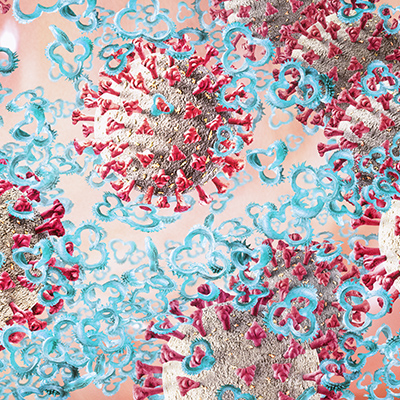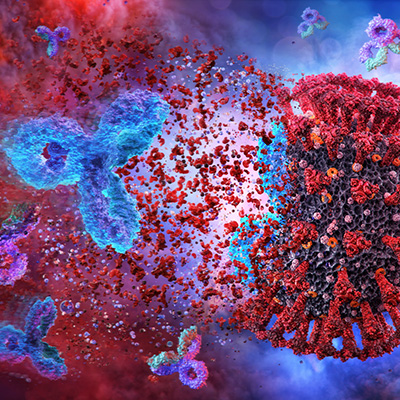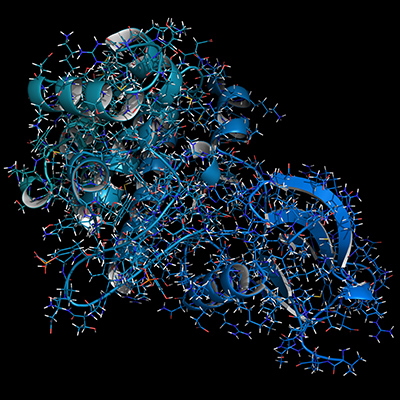August 4, 2020 -- The National Institutes of Health (NIH) is now studying an investigational monoclonal antibody (mAb), Ly-CoV555, as part of an adaptive phase II clinical trial.
ACTIV-2, established by NIH's Accelerating COVID-19 Therapeutic Interventions and Vaccines (ACTIV), is sponsored by the National Institute of Allergy and Infectious Diseases (NIAID) and Operation Warp Speed. The flexible design will allow the study to expand from a phase II to a phase III trial if the investigational treatment Ly-CoV555 shows promise, without delay. The investigational therapy was discovered by Abcellera Biologics in collaboration with the National Institute of Allergy and Infectious Diseases (NIAID) and subsequently developed and manufactured by Eli Lilly in partnership with Abcellera.
The primary goal of ACTIV-2 is to evaluate safety of the mAb treatment. The study will enroll patient volunteers currently infected with SARS-CoV-2 who have mild to moderate disease but who are not hospitalized. Initially, 220 volunteers will be enrolled and assigned to receive either an intravenous infusion of Ly-CoV555 or placebo infusion.
Investigators will test to see if the SARS-CoV-2 RNA can still be detected 28 days post-treatment. Patients will also receive pulse oximetry tests to determine the therapeutic effect on blood oxygen levels. Blood samples will be taken to understand how the therapy is affecting the course of SARS-CoV-2 infection. Participants will be followed for up to 24 weeks.
If successful, the trial will transition to a phase III study and enroll an additional 1,780 outpatient volunteers.
Copyright © 2020 scienceboard.net









